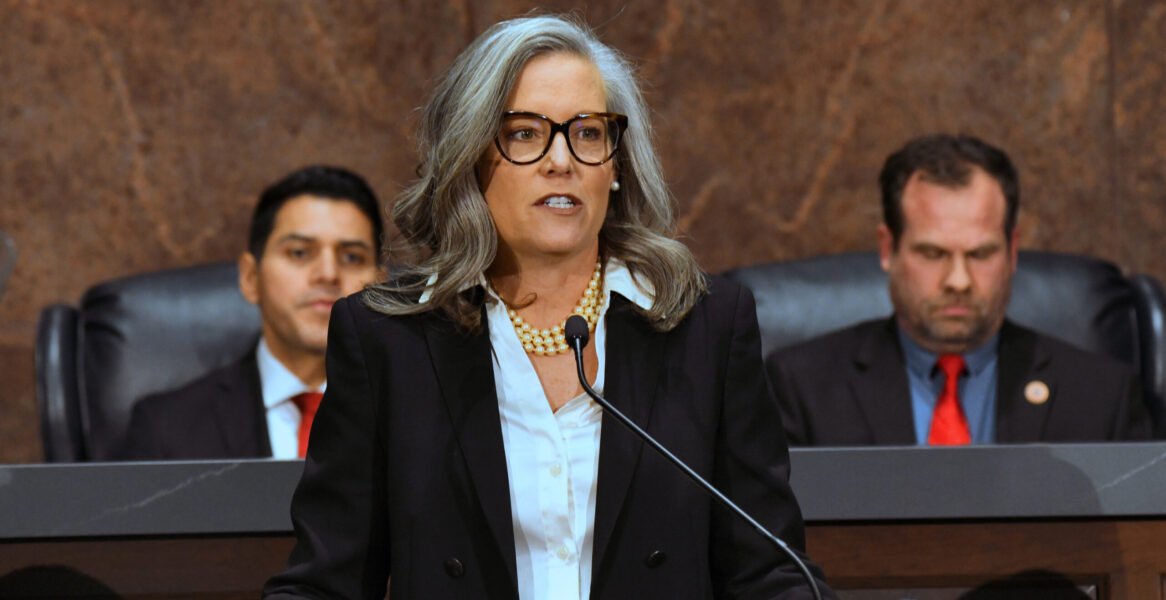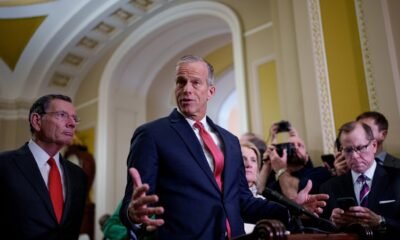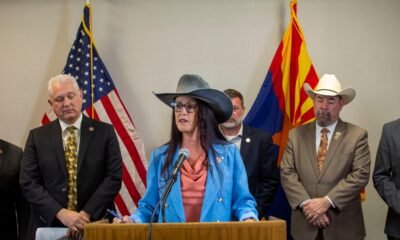AHCCCS
Hobbs and Hospital Officials Rally Against Congress’s Proposed Medicaid Cuts

A significant policy shift is on the horizon for Arizona’s Medicaid recipients, with nearly 25% facing potential loss of coverage due to new federal legislation. If enacted, the changes could severely impact the state’s rural healthcare facilities.
Democratic Governor Katie Hobbs recently gathered hospital officials at the Capitol to advocate against cuts approved by the Republican-controlled U.S. House. The stakes are high; officials warned of possible layoffs and closures of essential rural hospitals.
Hobbs estimated that approximately 200,000 of the nearly 2 million people enrolled in the Arizona Health Care Cost Containment System could lose coverage as a result of new work requirements for able-bodied individuals. These mandates stipulate a commitment to work or engage in community service for at least 80 hours each month, with limited exceptions, such as for pregnant women.
While the governor supports the concept of a work requirement, she asserts that the House’s proposal is excessively stringent compared to Arizona’s own plan, which includes nearly two dozen exemptions. At the gathering, representatives from various healthcare organizations detailed the financial ramifications of the proposed cuts.
Todd LaPorte, CEO of HonorHealth, projected a potential loss of around $600 million annually for his network, which operates under a $4 billion budget. “Health care is fundamental to a thriving economy in our state,” he stated.
Meanwhile, Dave Cheney, CEO of Northern Arizona Healthcare, expressed concern for the survival of rural hospitals. “I’m uncertain how many rural hospitals could endure these changes,” he remarked.
Neal Jensen, CEO of Cobre Valley Regional Medical Center, highlighted the dramatic consequences for local maternal care, noting that without their facility, expectant mothers would be forced to travel 90 minutes for services.
This debate centers on federal reforms that Democrats argue will reduce Medicaid funding and coverage, while Republicans assert they will merely tighten enrollment standards and eliminate waste. The core issue remains whether recipients should be mandated to work in exchange for benefits.
Under the GOP plan, exceptions are intended for individuals with serious medical issues, parents, and those undergoing treatment for substance abuse, among others. House Speaker Mike Johnson emphasized the need for accountability, claiming that those who refuse to work when capable are defrauding the system.
Governor Hobbs recognizes the merits of work requirements in principle but criticizes the House’s proposed details. She pointed out that rigorous standards have failed in other states, leading to decreased insurance coverage without boosting employment.
Hobbs highlighted that the costs associated with implementing these strict measures could overshadow any perceived savings, ultimately resulting in more individuals losing necessary healthcare. LaPorte echoed this sentiment, claiming that the stringent work requirements mask broader detrimental policy changes.
The proposed legislation also mandates recipients to verify their eligibility every six months, a change that could overwhelm administrative processes, making it increasingly challenging for individuals to maintain their coverage.
In addition, concerns have been raised about restrictions on federal funding for those above the federal poverty level and new cost-sharing requirements that could further complicate care access.
Governor Hobbs is particularly apprehensive that the U.S. Senate may escalate these cuts, further jeopardizing healthcare access statewide. Arizona’s own work requirements proposal does include several exceptions similar to the federal plan, but also proposes broader exemptions than those currently discussed.
The debate continues, with the potential consequences of these policy decisions looming large over Arizona’s healthcare landscape.


















